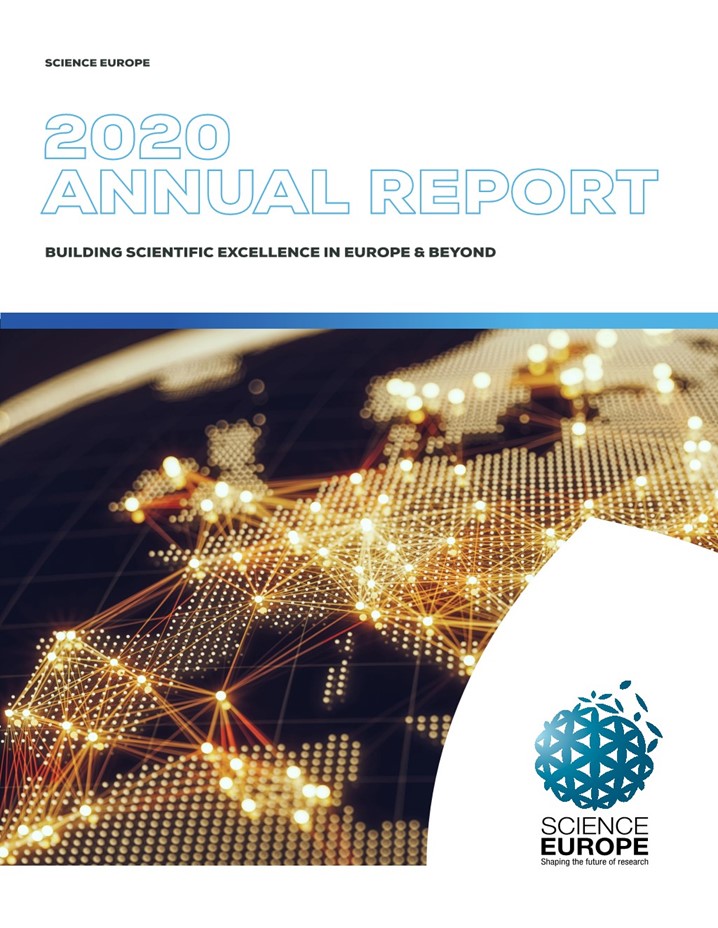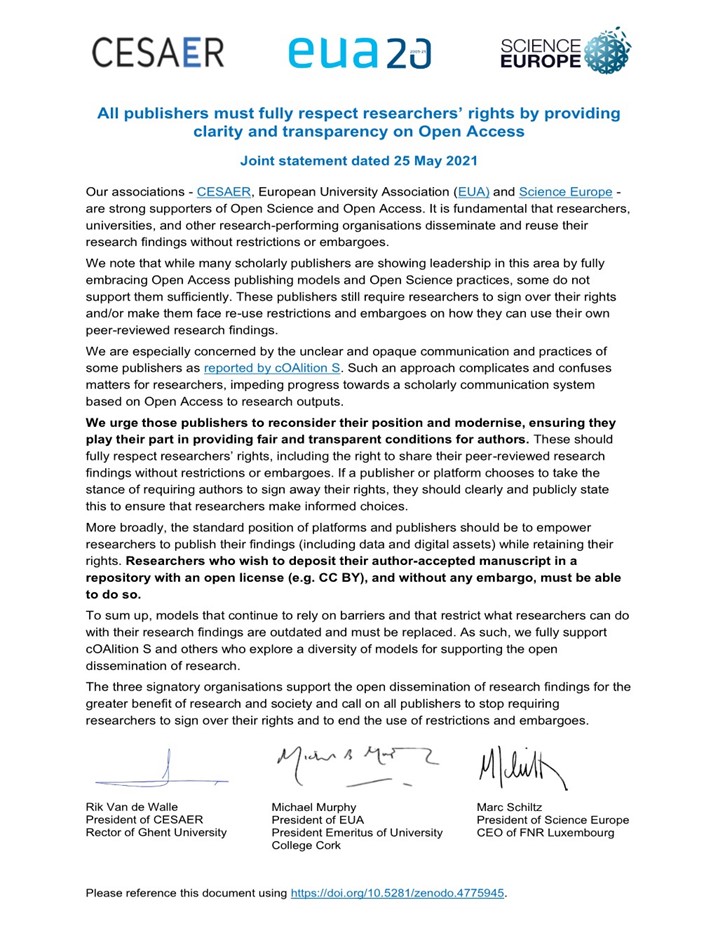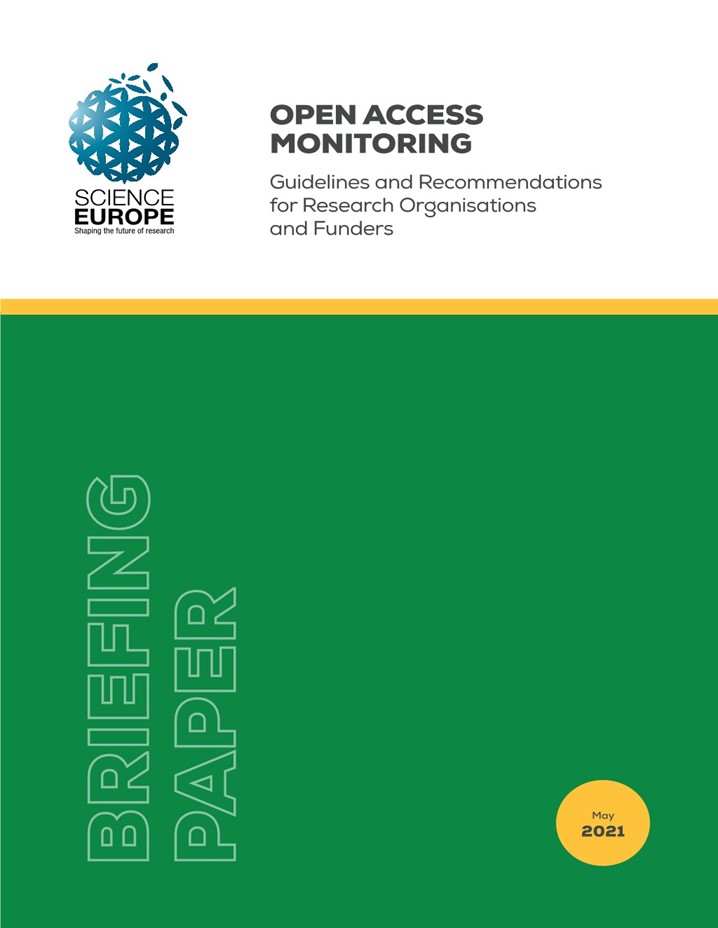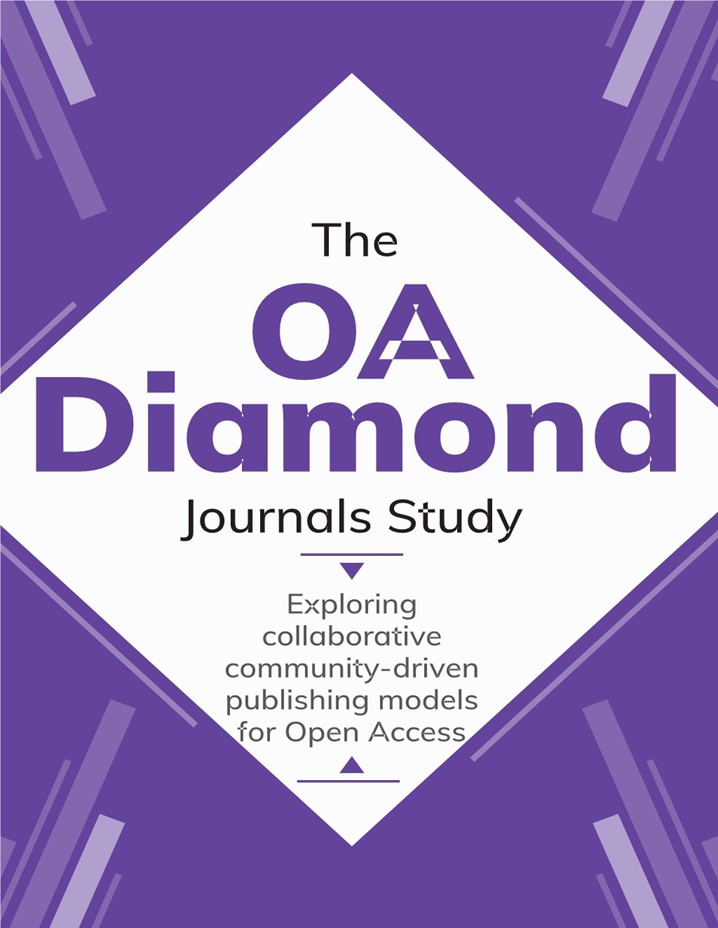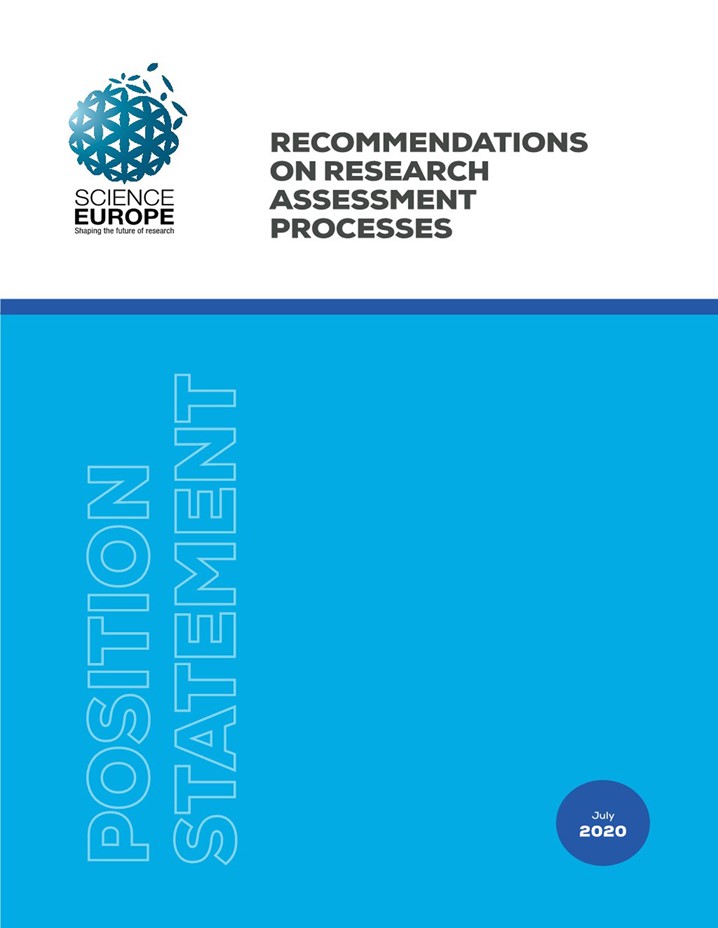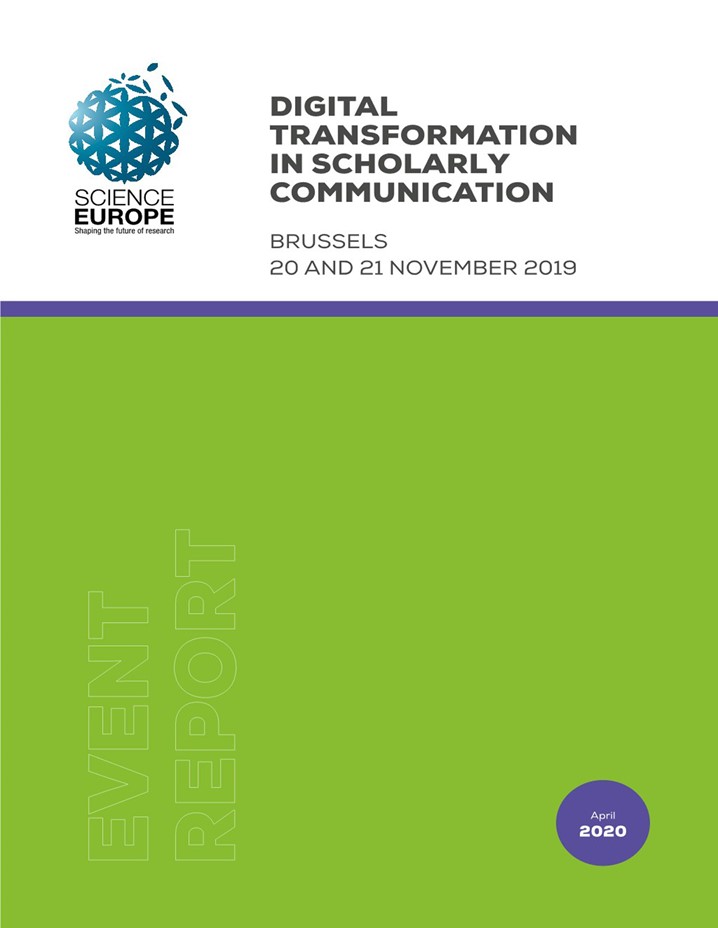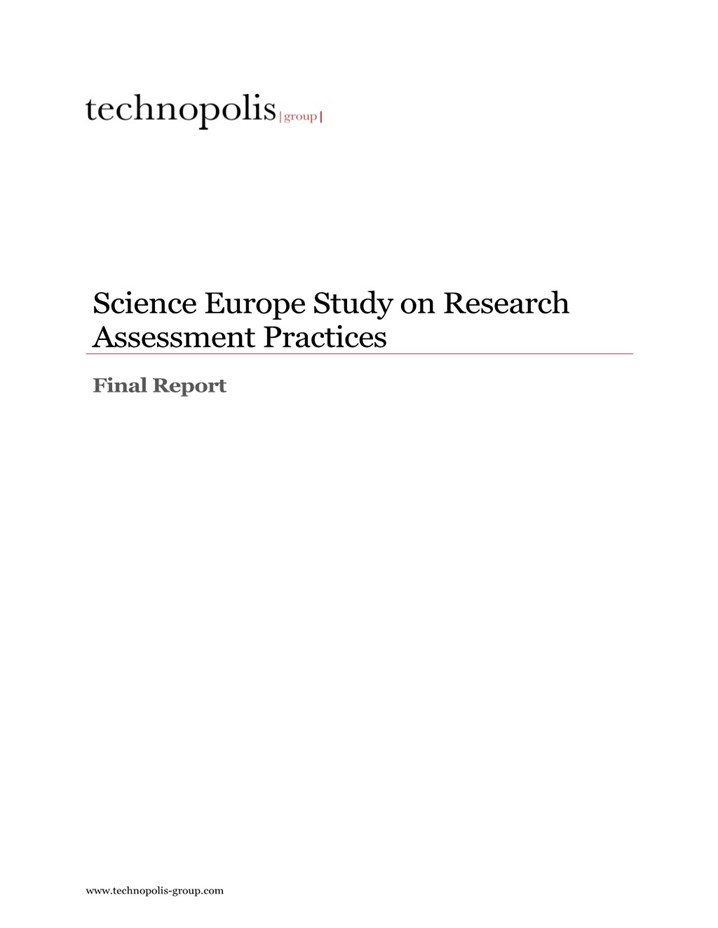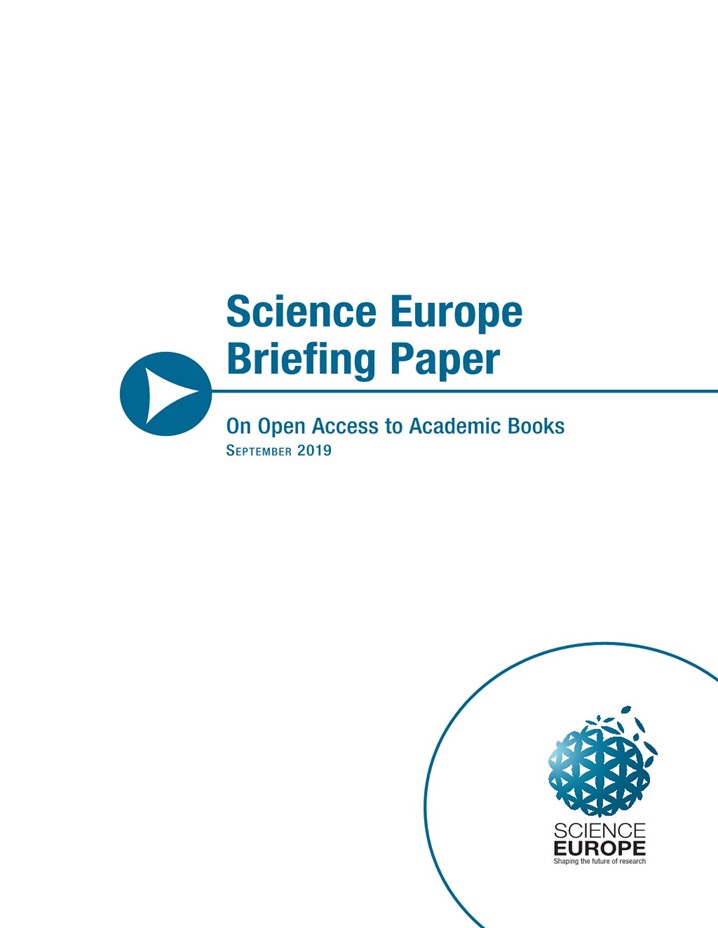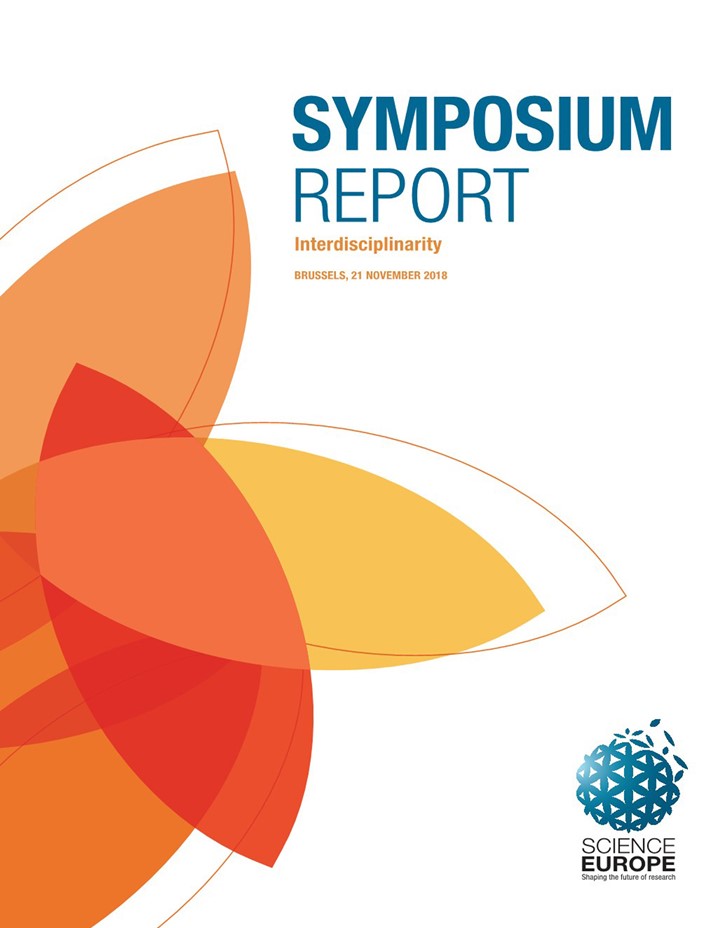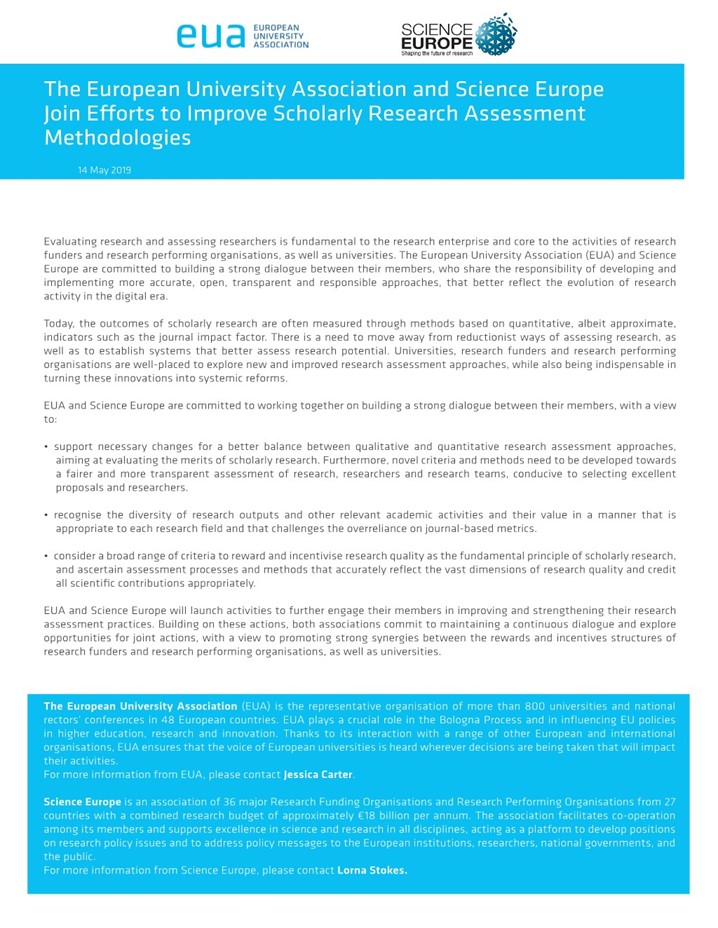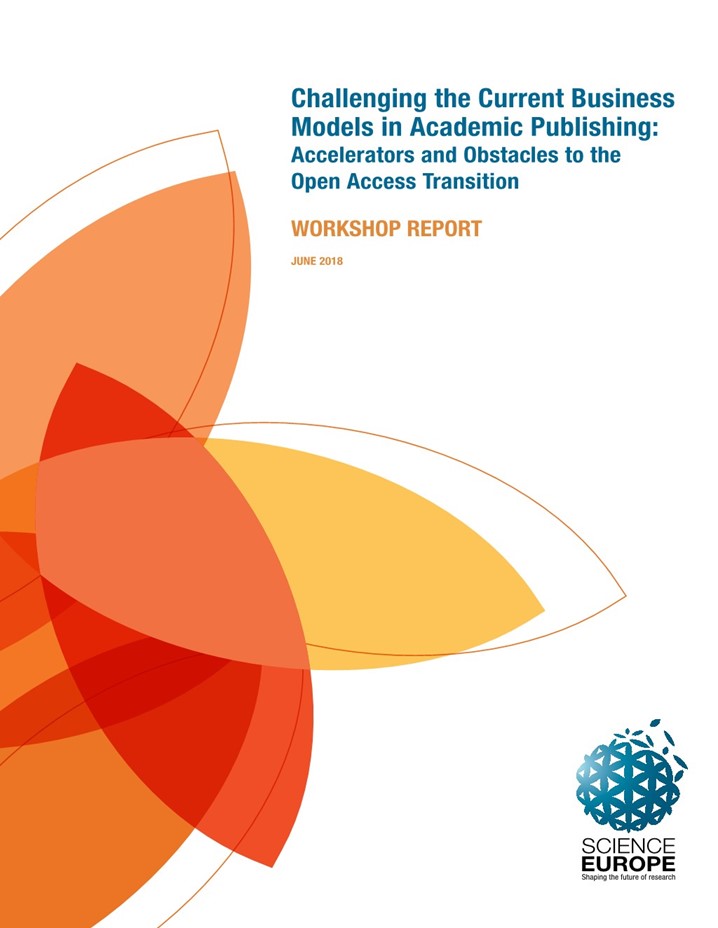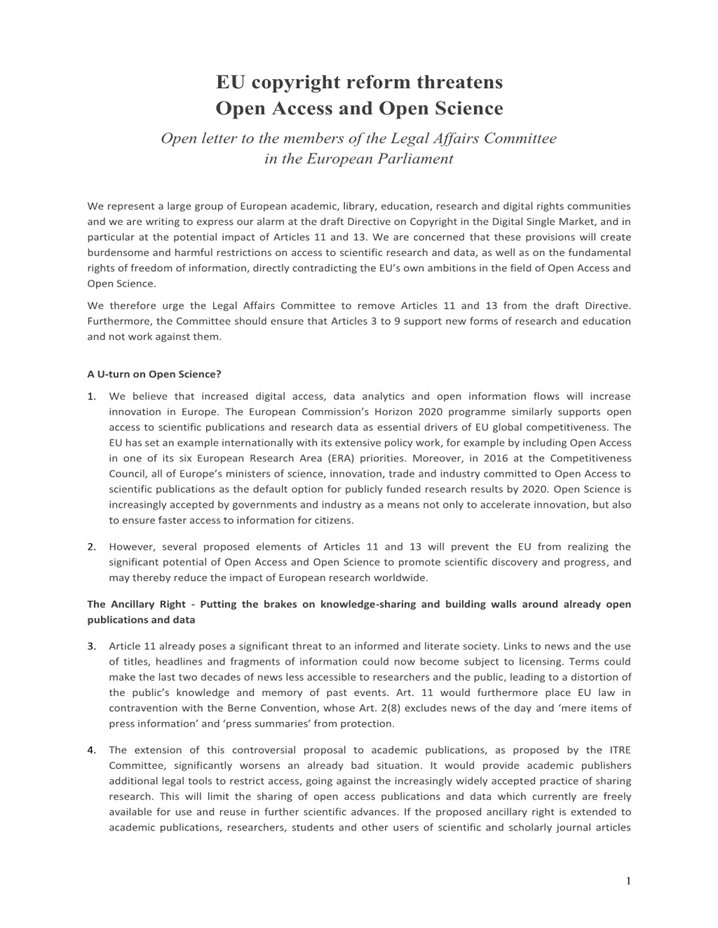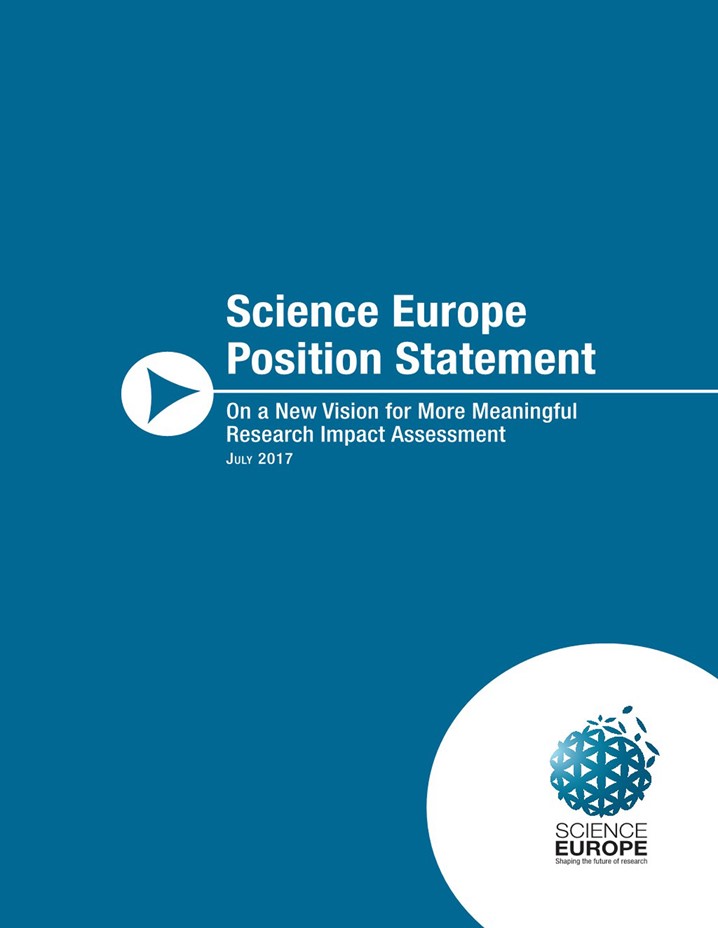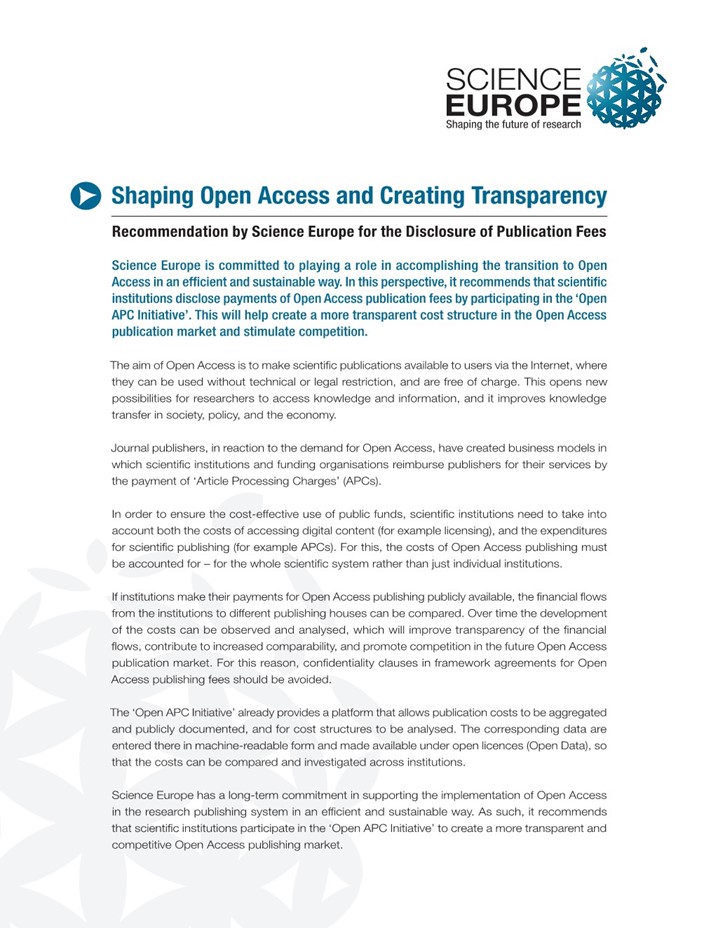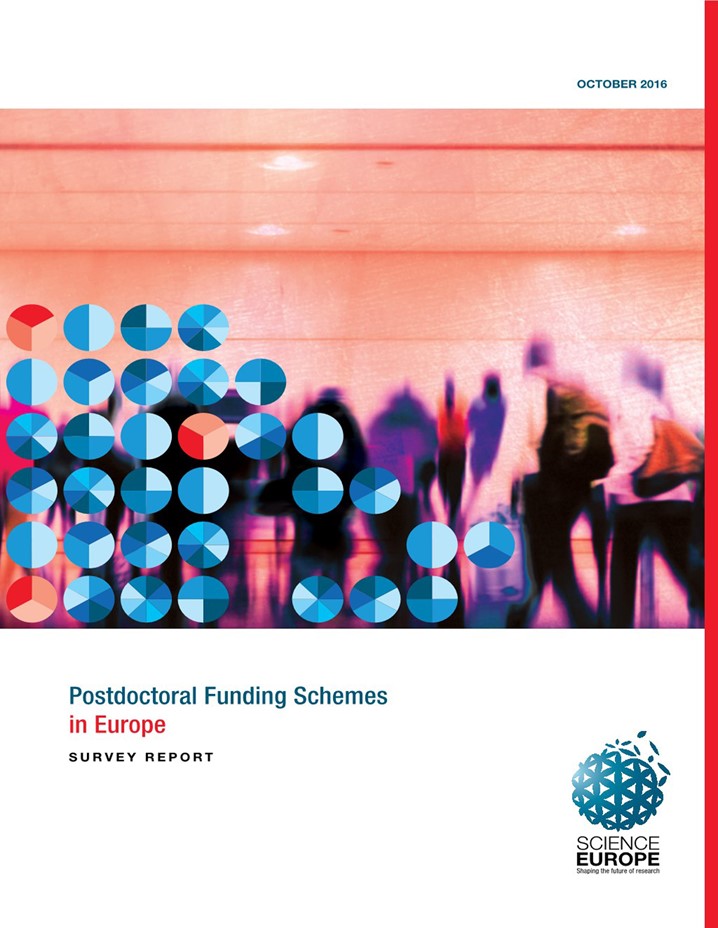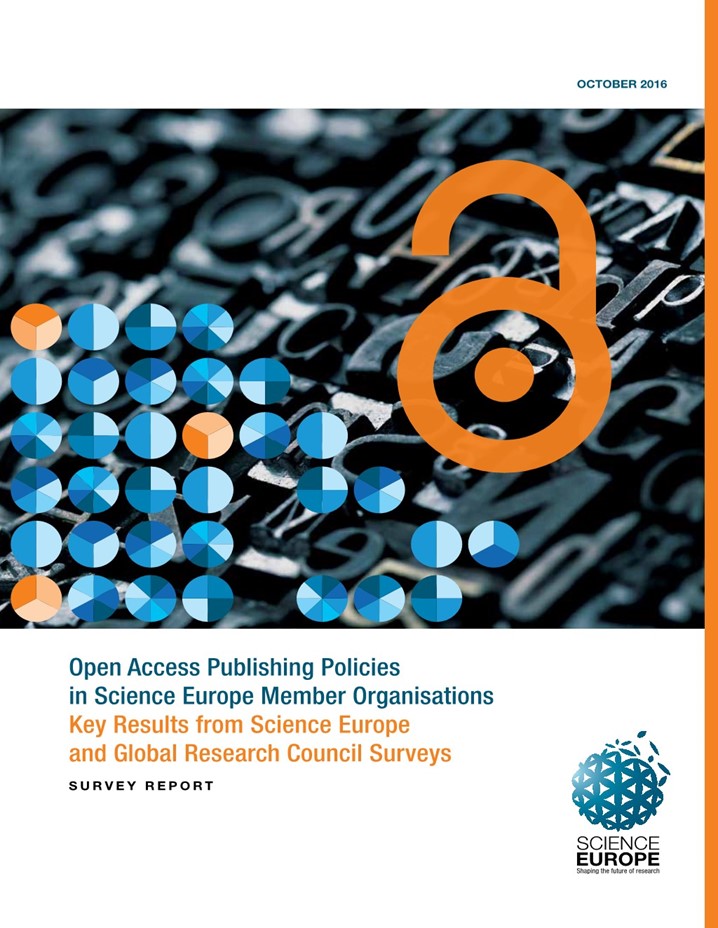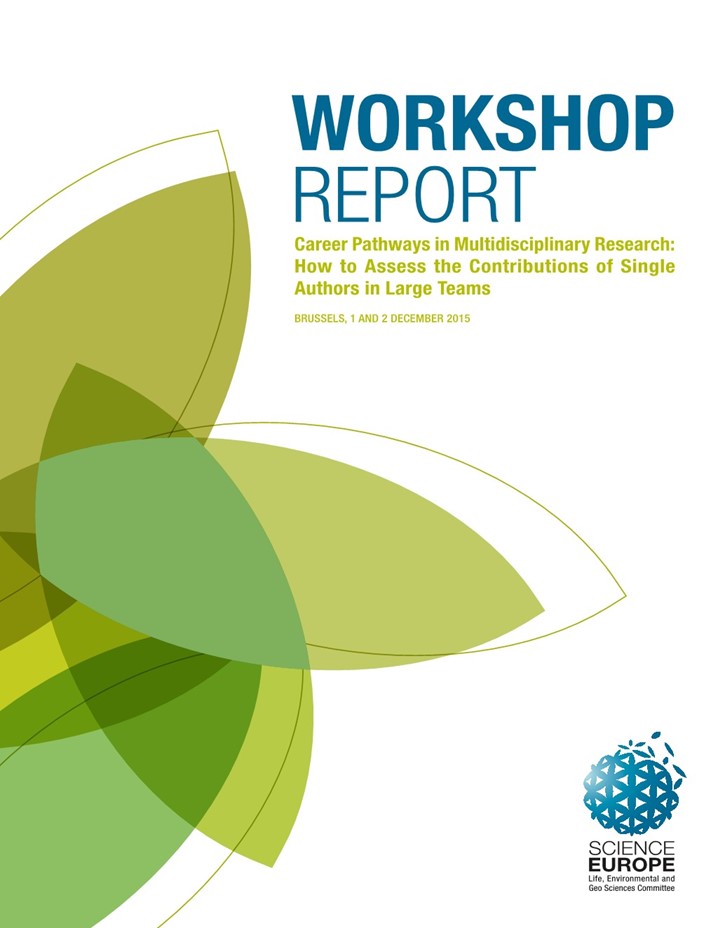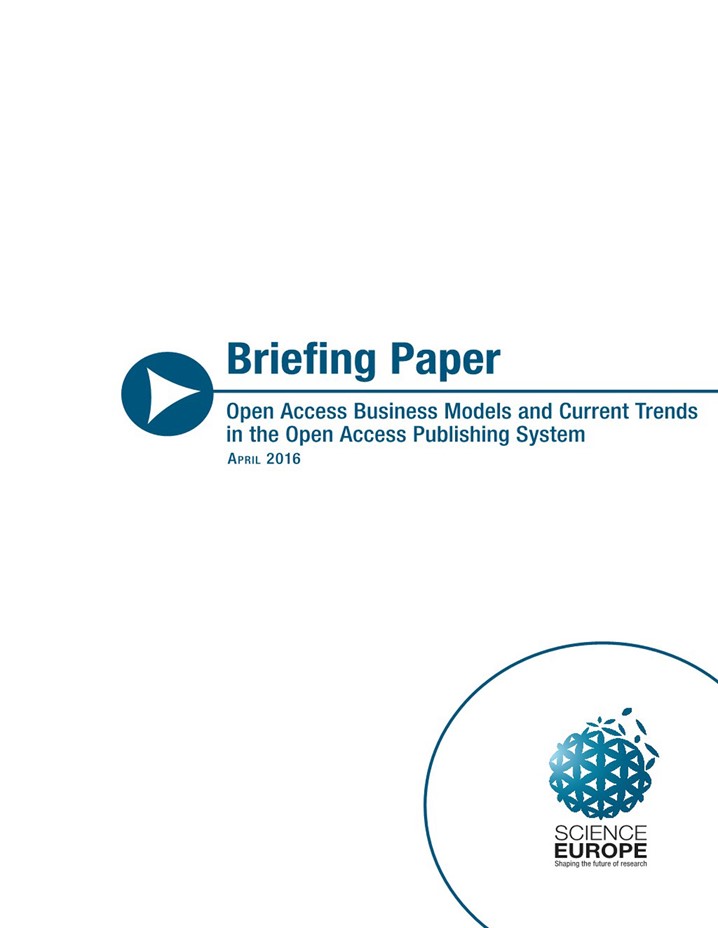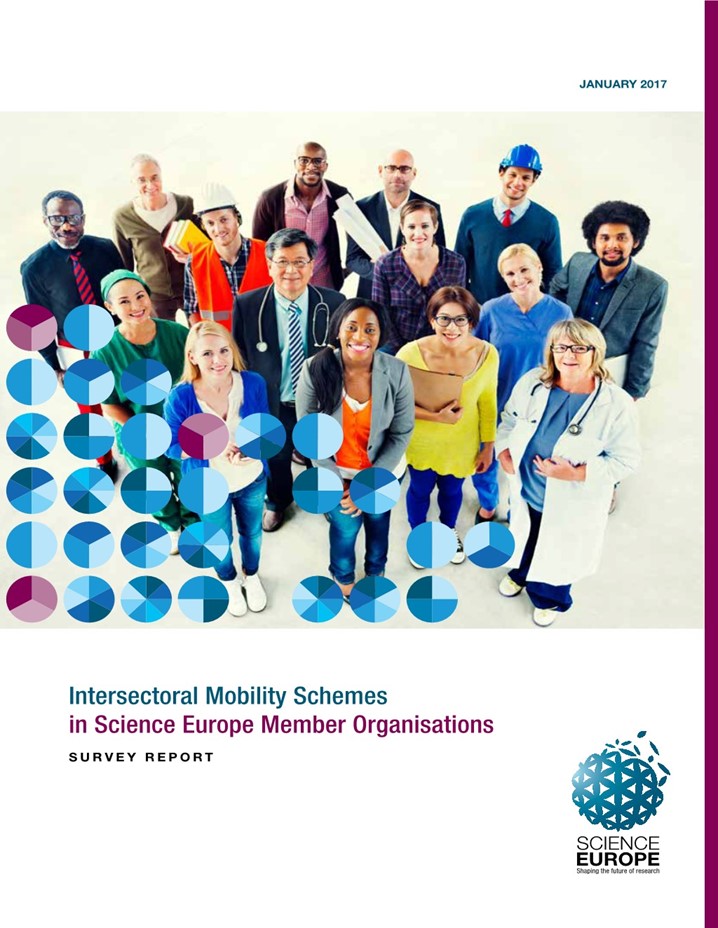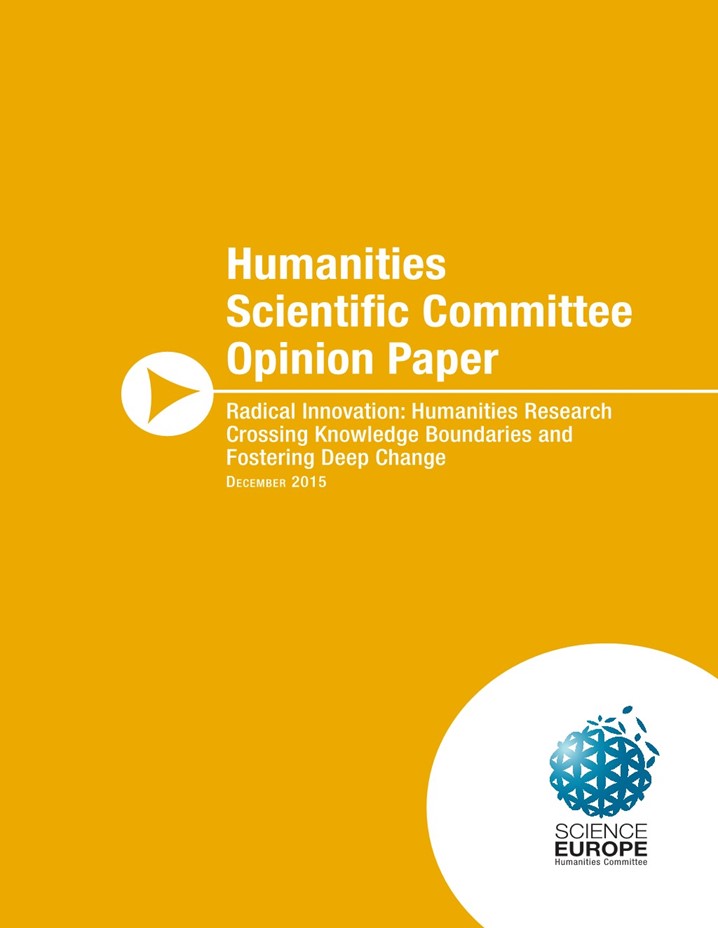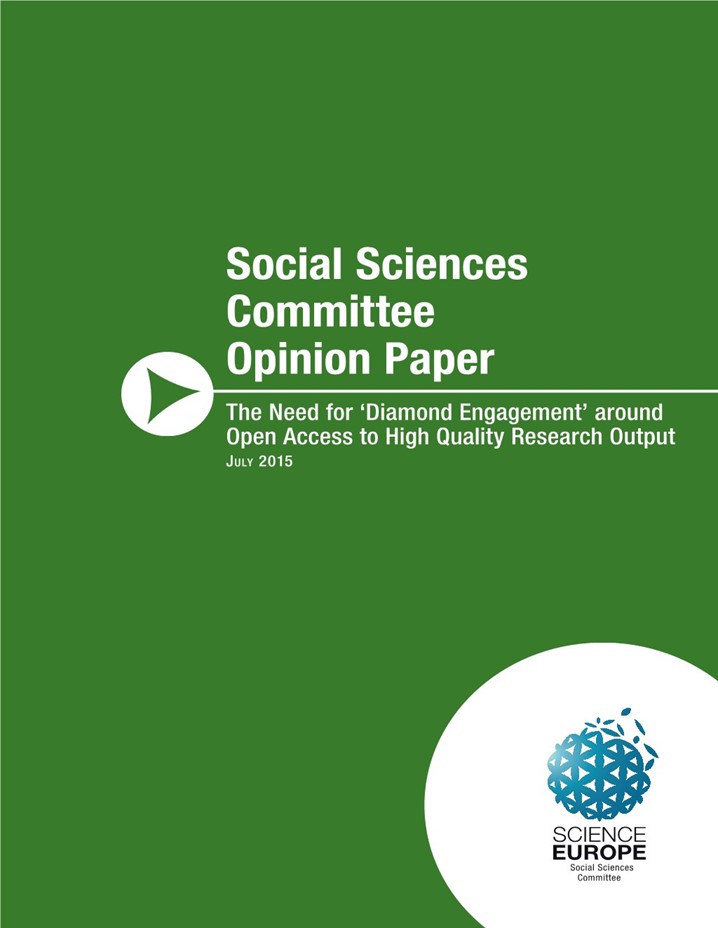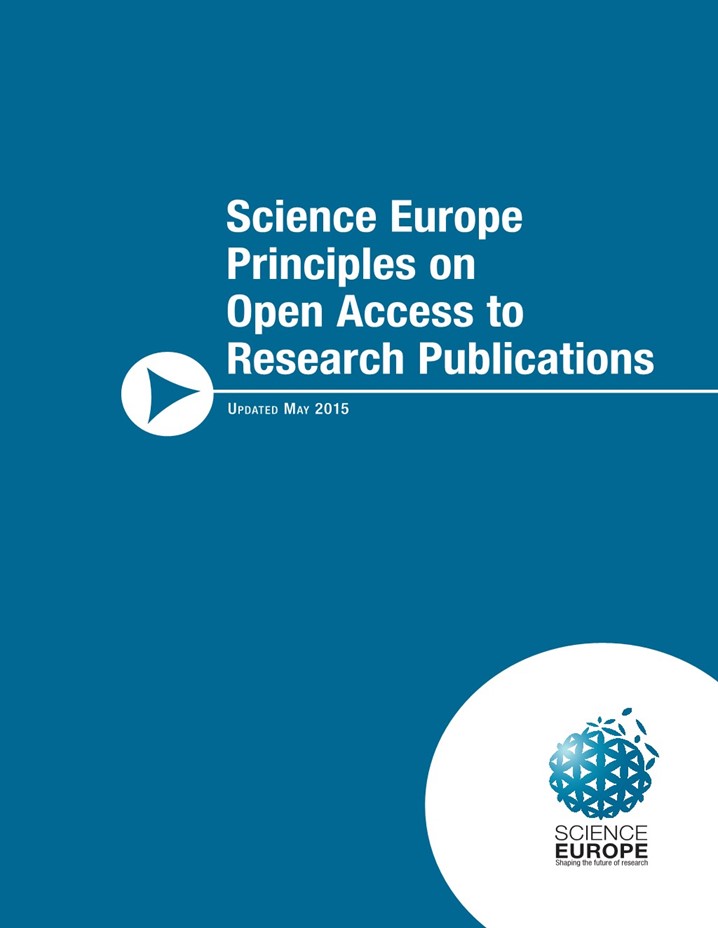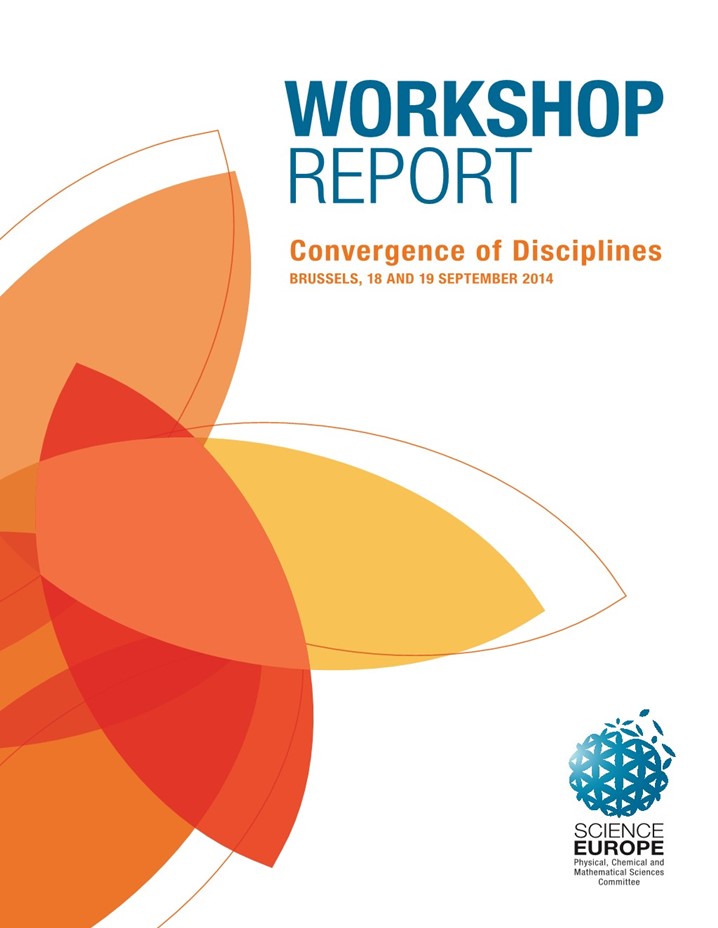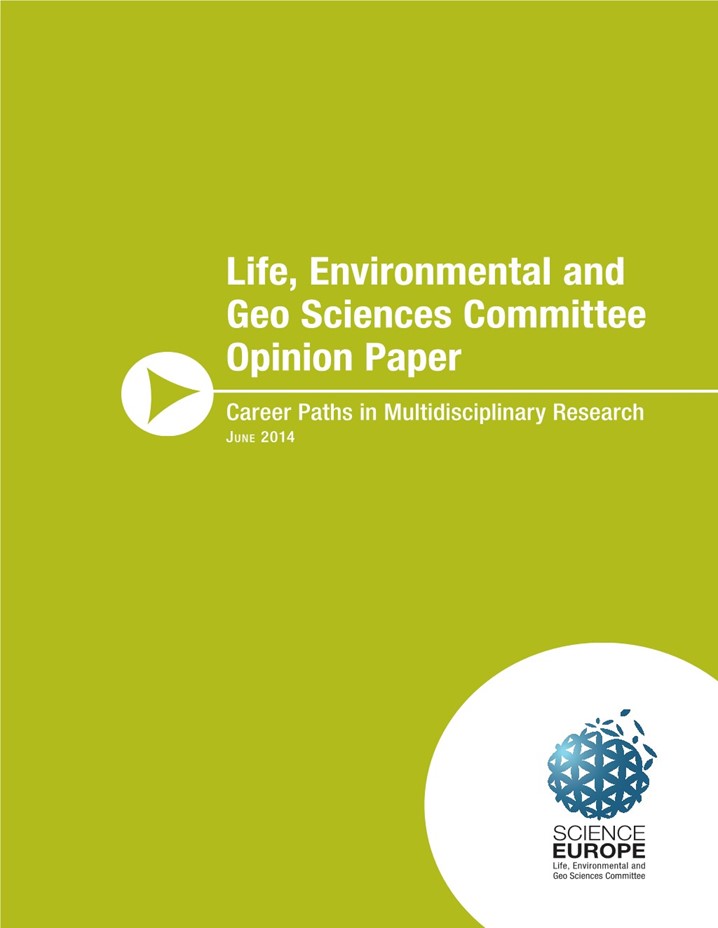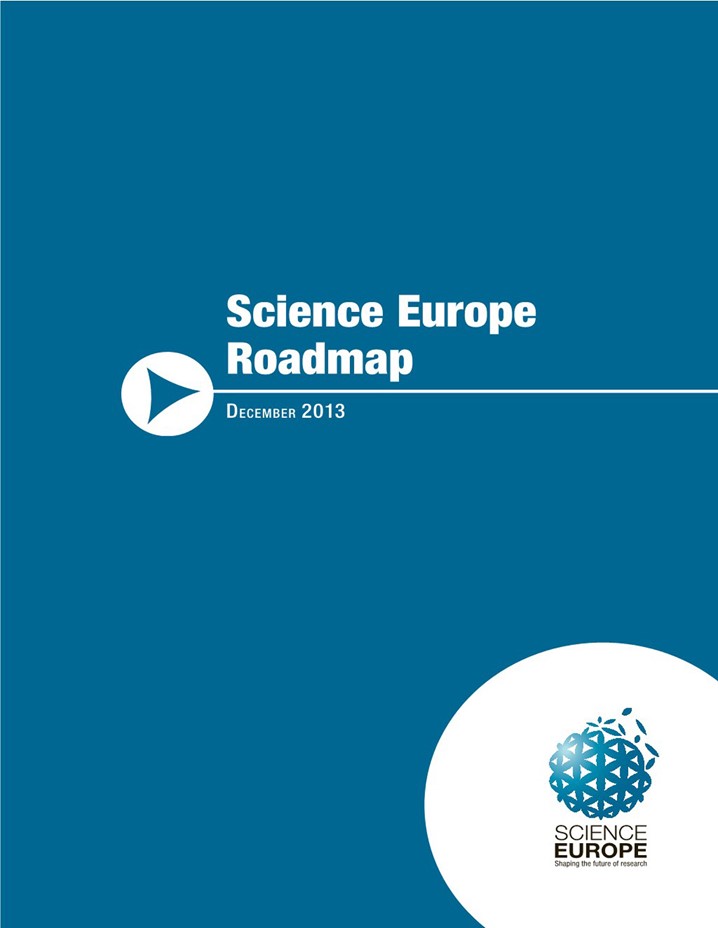Member-only content is available on this page. Please log in to view this content.

Our resources
Discover Science Europe’s comprehensive library of resources, including the most recent publications, briefings, and position statements.
52 resource(s) found
2020 Annual Report
The year 2020 saw a global pandemic attest to the value of science. In the race for COVID-19 treatments and vaccines, Science Europe’s Member Organisations were at the forefront of the global response and our association became more relevant and important than ever.
Joint Statement on Empowering Researchers in Open Access
Released in partnership with CESAER and the European University Association (EUA) this joint statement outlines how all publishers must fully respect researchers’ rights by providing clarity and transparency on Open Access.
Briefing Paper on Open Access Monitoring
This briefing paper aims to support decision makers at research organisations and research funders to develop new monitoring exercises or assess and improve existing processes to measure the Open Access status of publications.
The OA Diamond Journals Study
Science Europe and cOAlition S publish an in-depth report and recommendations arising from a study of community-driven Open Access journals across the world that are free for readers and authors, usually referred to as 'OA diamond journals'.
Position Statement and Recommendations on Research Assessment Processes
Science Europe calls on research funding and performing organisations to continuously evaluate their research assessment processes to ensure that they are effective, efficient, fair, and transparent.
Workshop Report on Digital Transformation in Scholarly Communication
The 20 and 21 November 2019 Science Europe Workshop on Digital Transformation in Scholarly Communication explored how new possibilities and technologies provided by the digital transformation can impact the future of the scholarly publication process.
Science Europe Study on Research Assessment Practices
In 2019, Science Europe conducted a flagship study on research assessment processes and practices. The study was developed and overseen by the Science Europe Task Force on Research Assessment and the Science Europe Office, and implemented by Technopolis Group Vienna.
Briefing Paper on Open Access to Academic Books
So far, much of the focus of the transition towards Open Access has been on scholarly and scientific articles. However, a significant number of disciplines, notably – but not only – within the Social Sciences, the Arts, and the Humanities produce and heavily use books. This briefing paper identifies the key issues at stake in implementing a policy of Open Access to academic books, and outlines recommendations for different stakeholder groups to facilitate and accelerate such a policy.
Science Europe Symposium on Interdisciplinarity
Interdisciplinarity is increasingly used to tackle complex scientific questions and address large societal challenges. At the same time, the evaluation of interdisciplinary research proposals poses a set of problems, ranging from missing common standards and criteria to shortages of peer reviewers with experience in evaluating interdisciplinary research. At its third Symposium, Science Europe and its Scientific Advisory Committee brought together researchers and other experts experienced in interdisciplinarity with high-level representatives from Science Europe’s Member Organisations, who fund and perform such research.
Joint Statement on Research Assessment
Released in partnership with the European University Association (EUA), this joint statement demonstrates a commitment to building a strong dialogue between members of both associations, who share the responsibility of developing and implementing more accurate, open, transparent, and responsible approaches that better reflects the evolution of research activity in the digital era.
Challenging the Current Business Models in Academic Publishing: Accelerators and Obstacles to the Open Access Transition
‘Big Deals’ are one of the dominant but highly-disputed business models in academic publishing. The model needs to be further analysed before it can be used as an instrument to implement and increase Open Access. This workshop was as organised to trigger further expert discussions on the current business models and consider the available alternatives.
EU Copyright Reform Threatens Open Access and Open Science
This open letter issued by the international research community calls on Members of the European Parliament to halt the adoption of harmful provisions found in the current draft of the Directive on Copyright in the Digital Single Market, which could threaten Open Access and Open Science.
Position Statement on a New Vision for More Meaningful Research Impact Assessment
Science Europe advocates using the notion of ‘value’ of research. This is wider than ‘impact’ and reflects the intrinsic value of scientific research and its capacity to generate new knowledge. This statement provides a series of key principles and actions for policy makers and research organisations to help bring forward a new vision of impact assessment.
Science Europe Recommendation for the Disclosure of Publication Fees
Science Europe is committed to playing a role in accomplishing the transition to Open Access in an efficient and sustainable way and encourages scientific institutions to disclose payments of Open Access publication fees by participating in the ‘Open APC Initiative.’ This paper highlights how this will help create a more transparent cost structure in the Open Access publication market and stimulate competition.
Postdoctoral Funding Schemes in Europe
The postdoctoral period is a critical phase in a researcher´s career: it is when (s)he chooses whether to pursue a scientific career, and succeeds in achieving that goal, or not. Science Europe has carried out a mapping of support opportunities for postdoctoral researchers, or ‘postdocs’, to improve understanding of what funders do to support researchers’ careers after the completion of their PhD, and to learn whether existing funding schemes can be improved in terms of career support.
Open Access Publishing Policies in Science Europe Member Organisations: Key Results from Science Europe and Global Research Council Surveys
Open Access greatly improves the pace, efficiency, and efficacy of research. This report highlights the efforts made by public research organisations in Europe to develop and implement Open Access policies and addresses the challenges faced by different actors in order to facilitate and accelerate the transition towards full Open Access for all scholarly publications by 2020.
Career Pathways in Multidisciplinary Research: How to Assess the Contributions of Individual Members of Large Teams
Scientific research increasingly relies on large collaborative, multi-disciplinary, and interdisciplinary research teams – often working across borders and across sectors – to address big societal questions. This report considers how research organisations can best support collaborative, multi-disciplinary, and interdisciplinary research teams. It also considers how can they allocate appropriate credit for research input and better evaluate multidisciplinary research.
Briefing Paper on Open Access Business Models and Current Trends in the Open Access Publishing System
Decisive action is needed to transition towards more effectively and efficiently towards an Open Access publishing system. This paper presents some of the recent trends and developments in the transition to Open Access, as well as various business models currently in use which aim to facilitate this transition. It also highlights expected benefits and underlines remaining challenges.
Intersectoral Mobility Schemes in Science Europe Member Organisations
Intersectoral mobility of researchers is gaining political momentum in Europe, with more interest in bringing in the competences that characterise researchers into public, private, and not-for-profit sectors. This survey report looks at the diversity of measures that are in place within Science Europe Member Organisations to enable researchers to be more mobile across different sectors of employment
Radical Innovation: Humanities Research Crossing Knowledge Boundaries and Fostering Deep Change
This Opinion Paper shows how arts and humanities research is at the heart of innovation processes. In this paper the Science Europe Scientific Committee for the Humanities advocates the need for a wider and deeper understanding of the concept of innovation, in order to better prepare Europe to tackle global challenges. The Committee points out ways to achieve stronger European leadership through the promotion of radical innovation by highlighting the contribution of arts and humanities research.
Opinion Paper on the Need for ‘Diamond Engagement’ around Open Access to High Quality Research Output
This publication by Science Europe’s Scientific Committee for the Social Sciences addresses two audiences: scientists, especially those who have been traditionally more resistant to the OA approach, and policy makers. In it, the Scientific Committee for Social Sciences proposes a ‘Diamond Engagement’ concept with the three key principles: partnership; standardisation and interoperability; and enabling structures.
Principles on Open Access to Research Publications
Open Access, as defined in the Berlin Declaration, means unrestricted, online access to peer-reviewed, scholarly research papers for reading and productive re-use, not impeded by any financial, organisational, legal or technical barriers. Ideally, the only restriction on use is an obligation to attribute the work to the author. Science Europe Member Organisation are committed to a shared set of principles on Open Access to ensure consistency and coherence in their efforts and activities.
Workshop report: Convergence of Disciplines
This workshop was convened by the Science Europe Scientific Committee for Physical, Chemical, and Mathematical Sciences to explore issues surrounding the concept of ‘convergence’ and its potential relevance to, and implications for, research funding organisations and research performing organisations in Europe. The aim of this exploratory workshop was to provide a forum for debate and discussion, rather than to arrive at specific conclusions or formulate policy recommendations. The workshop, attended by some 45 delegates, took the following format: four keynote speakers with expertise relevant to the topic of convergence gave presentations, followed by three short interventions. Delegates were then split into three groups which sat in parallel to explore the areas of governance, tools and infrastructures, and training and careers. Again this was followed by an open discussion.
Career Paths in Multidisciplinary Research
In this paper, produced by the Scientific Committee for the Life, Environmental and Geo Sciences, the Committee highlights the lack of clear evaluation metrics for scientists working in multidisciplinary teams. The Committee devises also concrete recommendations to contribute to the elaboration of an appropriate evaluation framework and suggests four main categories of indicators that demonstrate success in multidisciplinary and collaborative research: data generation, analysis and knowledge management; the development of enabling tools for data handling; the added value of collaborative research, and acknowledging contributions in bibliometic analysis.
Science Europe Roadmap
The Roadmap, approved by the Science Europe General Assembly in November 2013, is Science Europe’s action plan to contribute to the elements of a successful research system. It acts as a framework for voluntary collective activity, providing a long-term strategy for the association. The ‘Priority Action Areas’ are those in which Science Europe members believe that there is a potential to achieve tangible and substantive progress, and where they can add real value by working together.

